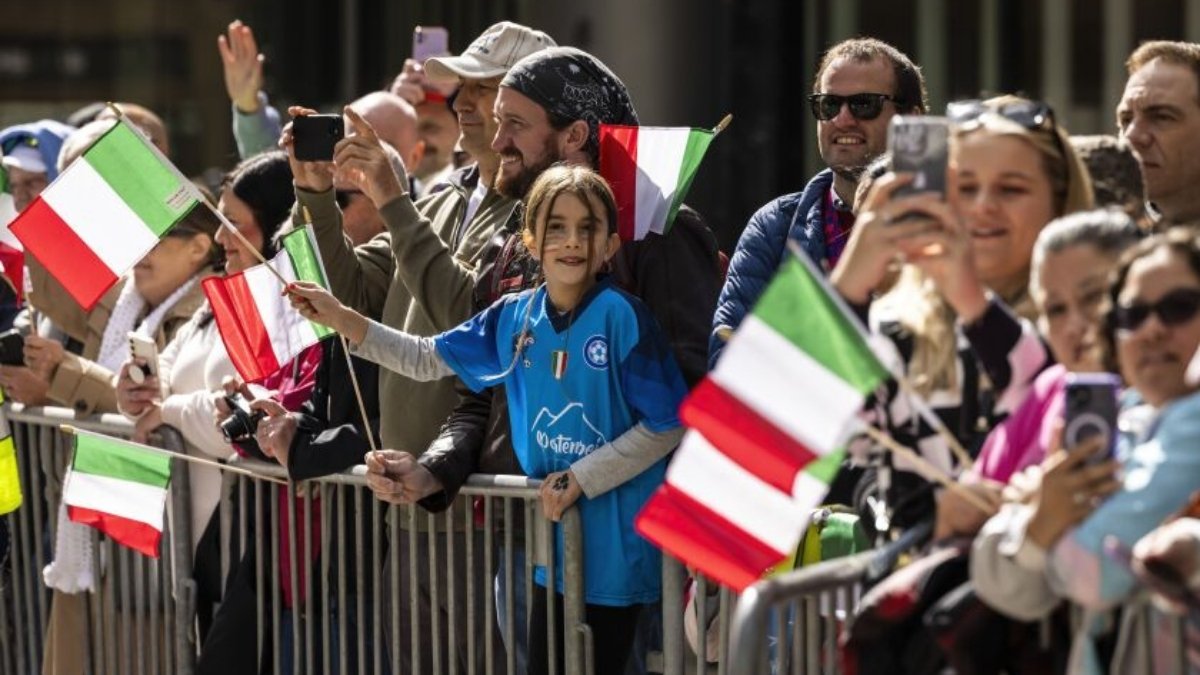Columbus Day is observed today, on October 13, 2025, and is often viewed as a simple celebration of Christopher Columbus’s 1492 voyage. However, the day carries far more depth and debate than many realise. Traditionally marked by parades, community gatherings, and displays of Italian-American pride, Columbus Day has been a federal holiday since 1937 (first widely observed in 1892) and continues to spark conversations about history, heritage, and identity. From festive traditions to historical controversies, here are nine key facts every American should know about Columbus Day 2025.
1. Columbus Day Marks a Historic Voyage

(Credits: History)
In 1492, Christopher Columbus sailed west from Spain, hoping to reach Asia. Instead, he reached the Caribbean, opening the door for European exploration of the Americas. This journey is what the holiday originally commemorates.
2. Became a National Holiday in 1937

Although Columbus Day was celebrated locally for decades, it was officially made a federal holiday in 1937 under President Franklin D. Roosevelt. This move was strongly influenced by Italian-American communities eager to celebrate their heritage.
3. Celebrates Italian-American Heritage

(Credits: Chicago Sun Times)
Many Americans associate Columbus Day with Italian pride. Parades and cultural events in cities across the U.S. showcase Italian heritage, contributions, and traditions, making it more than just a history lesson.
4. The Holiday Collides with the Indigenous Day
Columbus’ legacy is debated. His voyages led to colonisation and harm to Indigenous populations. This has sparked a national conversation, with many people choosing to celebrate Indigenous Peoples’ Day instead, recognising Native American history and culture.
5. Some States Have Switched Holidays
States like South Dakota, Hawaii, and Alaska now celebrate Indigenous Peoples’ Day either alongside or instead of Columbus Day. This shift reflects growing awareness of the holiday’s historical impact.
6. Fun Facts About Columbus Day
Did you know the first official Columbus Day celebration in the U.S. was in 1792, marking the 300th anniversary of his landing? Later, in 1892, communities across the country held patriotic celebrations for the 400th anniversary. Today, many cities host parades, festivals, and cultural programmes.
7. Explaining Columbus Day to Kids
Teaching children about Columbus Day can focus on exploration and navigation skills rather than colonisation. Emphasise curiosity, discovery, and the historical context while also recognising Indigenous perspectives.
8. Always a Long Weekend
Thanks to the Uniform Monday Holiday Act, Columbus Day is observed on the second Monday in October, giving Americans a three-day weekend and an opportunity to participate in cultural events.
9. Indigenous Peoples’ Day Is Rising
More than 200 cities now celebrate Indigenous Peoples’ Day to honour Native Americans. This day promotes understanding of Indigenous history, culture, and resilience, offering an alternative perspective alongside traditional Columbus Day celebrations.
Key Takeaway
Columbus Day is a mix of history, heritage, and debate. By knowing its origins, traditions, and controversies, Americans can appreciate the holiday thoughtfully while recognising Indigenous contributions and experiences.
You May Also Like:
European Union ESS 2025, Check Key Updates for U.S. Citizens!
NFL Week 6 Takeaways: Fantasy Winners, Losers & Team Grades 2025
Conclusion
Therefore, Americans recognise that the essence of Columbus Day 2025 with its undeniable history. What began as a celebration of exploration and Italian-American pride has evolved into a broader reflection on discovery, culture, and identity.
Whether you choose to honour Columbus’s voyage or observe Indigenous Peoples’ Day, the holiday invites us to learn, reflect, and appreciate the complex story of America’s beginnings.
To see more of such stories, you can go ahead and add this site to your preferred sources by clicking here.
Comments
All Comments (0)
Join the conversation